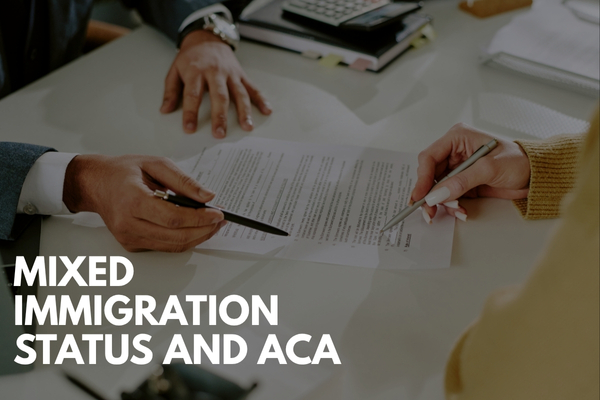
Can I Get Health Insurance If I Have a Mixed Immigration Status? Complete 2026 Guide
In the United States, millions of families live with mixed immigration status, where some members are U.S. citizens or lawful residents and others are undocumented.
One of the most common questions these families ask is:
“Can we get health insurance even if not everyone in the household has legal status?”
The answer is yes — in many cases, you can get coverage.
However, the rules vary depending on each person’s immigration status and the type of plan available.
This guide explains who qualifies, what your options are, and how to protect your family’s health — no matter your immigration situation.
1. What Does “Mixed Immigration Status” Mean?
A mixed-status household includes family members with different immigration situations, such as:
U.S.-born citizens
Lawful permanent residents (Green Card holders)
Immigrants with valid temporary visas
Undocumented individuals
This is very common, especially in families where children were born in the U.S. but their parents are not yet residents.
2. Who Can Get Health Insurance in the U.S.?
Your coverage options depend on each person’s legal status.
a. U.S. Citizens and Lawful Permanent Residents
They are eligible for:
Marketplace health plans (ACA / Obamacare)
Medicaid or CHIP, depending on income and the state they live in
b. Immigrants With Legal Temporary Status
You may qualify if you have:
A valid work or student visa
Approved asylum or refugee status
Temporary Protected Status (TPS)
These immigrants can enroll in ACA Marketplace plans and receive financial assistance.
c. Undocumented Immigrants
Although undocumented individuals can’t buy coverage through the Marketplace or enroll in Medicaid, they still have alternatives:
Private insurance directly through insurers
Community health clinics and federally qualified health centers (FQHCs)
State or local programs offering limited medical care
In some states, undocumented children and pregnant women may qualify for partial or full public coverage.

3. What If Only Some Family Members Qualify?
This is the key situation for mixed-status families.
If one or more members do qualify for a Marketplace plan, they can apply safely without affecting others’ immigration status.
Example:
The children were born in the U.S., but the parents are undocumented.
The children can qualify for ACA or CHIP coverage, even if their parents don’t apply.
The IRS and the Health Insurance Marketplace do not share immigration information with immigration enforcement agencies, so applying does not create immigration risks.
4. How to Apply for a Plan With a Mixed-Status Family
The process is similar to any other Marketplace application, but you should take these steps:
Create an account on Healthcare.gov or your state’s Marketplace site.
List everyone in your household, even if not all are applying for coverage.
Provide immigration information only for those applying.
Do not submit immigration documents for those who aren’t seeking coverage.
The Marketplace will calculate subsidies based on total household income and family size — regardless of immigration status.
5. Health Insurance Options for Mixed-Status Families
a. ACA Marketplace Plans
Citizens and legal residents can apply and receive tax credits to lower monthly premiums.
Comprehensive coverage (doctor visits, hospitalization, prescriptions)
No denial for pre-existing conditions
b. Medicaid and CHIP
Children who are U.S. citizens or legal residents can get coverage even if their parents can’t.
Some states also offer CHIP Perinatal, which covers prenatal care for undocumented mothers.
c. Private Health Plans
If no one qualifies for ACA or Medicaid, families can buy private insurance directly from insurers.
Although more expensive, these plans provide flexible coverage and wider provider networks.
d. State and Local Programs
Several states (such as California, New York, and Illinois) have expanded health coverage for certain undocumented groups — especially children and young adults.

6. Will Applying for Health Insurance Affect My Immigration Status?
No.
Applying for health coverage does not count as a “public charge” and will not harm your immigration process, including green card or status adjustments.
Federal law protects both medical and immigration privacy.
Marketplace data is not shared with ICE or USCIS under any circumstance.
7. What If My Income Is Low or Irregular?
Even if you have variable or informal income, you can still estimate your annual earnings when applying.
The Marketplace and Medicaid accept:
Previous tax returns
Pay stubs or informal payment records
Employer or self-employment letters
The key is to provide a reasonable and current income estimate.
8. How to Protect Your Entire Family’s Health
Even if not everyone qualifies for the same program, there are ways to protect the whole family’s well-being:
Enroll eligible members in ACA or CHIP plans.
Use community clinics and low-cost health centers for those without coverage.
Access discount programs for medications and dental care.
Work with a certified agent (like SF Solutions) to review your options safely and confidentially.


